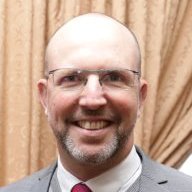click to dowload our latest edition
CLICK HERE TO SUBSCRIBE TO OUR NEWSLETTER


Published
4 years agoon
By
adminTALI FEINBERG
“We cannot put a price tag on the value of even one human life. However, saying that the lockdown is about ‘lives versus livelihoods’ is a false framing of the moral question our government is facing,” said Goldstein as the three discussed the legality, morality, and logic of the lockdown in the webinar hosted by Marais Road Shul in Cape Town.
“The lockdown was put in place to slow the rate of infection, not to eradicate the virus,” argued the chief rabbi. “Only a vaccine can do that.” At the outset of the crisis, he said that President Cyril Ramaphosa’s decisive action took much courage and prioritised the sanctity of human life.
When meeting the president at the time, the chief rabbi conveyed the Jewish community’s respect for the lockdown, knowing it’s a mitzvah to defend human life. Indeed, “the commandment of pikuach nefesh (saving a life) sets aside almost all our other commandments”, he told the audience.
While lives have been saved, the chief rabbi said that extending the lockdown wouldn’t slow the inevitable spread of the virus. “No one ever claimed that the lockdown was to eradicate the virus. It has always been about slowing the rate of infection so that our hospitals wouldn’t become overwhelmed. This in turn would save lives. Seven weeks later, surely our infrastructure is prepared?”
He said that when the lockdown came to an end, the virus would start to spread again. “If the economy is opened up sooner, it doesn’t mean more or less lives will be lost. But what is certain is that without an easing of restrictions, more jobs will be lost, more poverty will be inflicted, and there will be more human suffering. I don’t think we can overstate the level of economic devastation ravaging the country.”
In the previous week, he had spoken to three separate business owners of medium to large companies that have had to lay off between 400 to 600 workers. “At the end of this month, how will those workers and their families eat?” Goldstein asked. Furthermore, children are suffering as they don’t get their one nutritious meal of the day at school. “On so many different levels, and for every job lost, another family is suffering. Every single day, businesses are closing.”
He suggested that the country proceed with great caution, which is the responsibility of every citizen, and allow the economy to open, “so this country can survive”.
Davis said, “Any government would struggle with these decisions. The difficulty South Africa has is that we can’t extrapolate entirely from developed countries. We have a different social framework, and when you have a developing society, the lockdown becomes problematic.”
He said that while our lockdown was initially justified, once the virus reached the townships, it was never going to be suppressed even with a lockdown in place. Therefore, it’s “not a viable strategy” for South Africa to continue under lockdown.
“Now that it’s clear that the lockdown isn’t going to suppress the growth of the virus, we need to think differently,” Davis said. Looking to the parsha (Torah reading) of the week, which explores inequality and using every seventh year to correct this, he suggested that this was a chance to “imaginatively re-develop our economy, bringing social justice to millions”.
Davis believes that the great tragedy is that South Africa went into the lockdown in an already weak position. Therefore, he thinks we shouldn’t just be debating the lockdown, but asking ourselves what we want our economy and society to look like afterwards. “It must be about an expanding, rather than contracting economy, and reconstructing society,” he said.
Davis said we shouldn’t see the situation as a dichotomy. Even after lockdown, there must be testing, tracing, and sensible measures. “It’s an acute balancing act.”
Addressing some of the questionable regulations like the ban on alcohol and cigarettes and instructions about what clothing can be sold, he said some regulations were “devoid of justification” and weren’t part of the government’s mandate to prevent or limit disaster under the Disaster Management Act.
“They have suppressed the economy and jobs more than they should have, and there has been far too much control and command,” Davis said. “These highly questionable regulations have depressed confidence, and could erode the basis of a constitutional democracy.”
Abel argued that as a Jewish community, we have as much right as other citizens to raise our voices and debate these issues. Having previously expressed concern about the lockdown on social media, he believes that stage-four lockdown includes “draconian measures” and an “overreach”.
He said that the next step must be to open the economy along with protecting the elderly and immuno-compromised. “It’s likely that many people will get the virus. The question is if we will get it and have a job and be able to earn, or get it and be in abject poverty.
“If we don’t go back to work soon, we will turn a health crisis into an unrecoverable economic crisis,” he said. “We can’t afford the steps wealthy countries can – they have stimulus packages that we can only dream of. If we don’t end the lockdown, this will be a cataclysm from which we won’t recover.”

Martin Shandling
May 25, 2020 at 12:34 am
‘Smart wise thinking!! BG EAL’